Bacolod City steps onto the global food stage as host of Terra Madre Asia & Pacific 2025
Text by Eris Choo
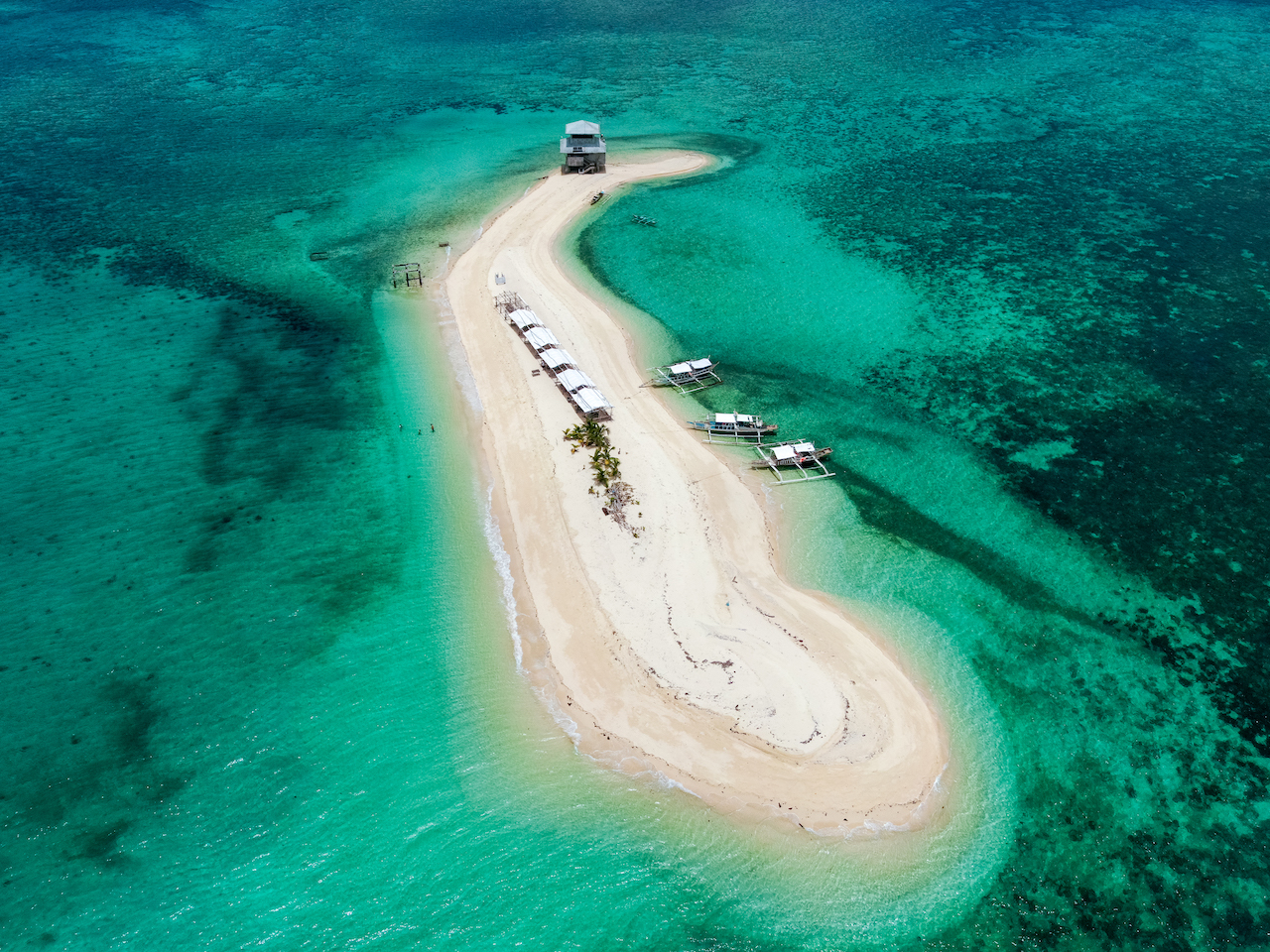
For the first time since its founding in Italy three decades ago, Terra Madre, the global sustainable food movement created by Slow Food, is hosting a full regional edition outside its home base of Turin, Italy. Its chosen destination is Bacolod City, its newly designated Center for Sustainable Gastronomy.
From 19 to 23 November 2025, more than 2,000 delegates from over 20 countries, including farmers, cooks, chefs, fisherfolk, indigenous leaders, youth innovators, and policy advocates, converge for the first-ever Terra Madre Asia & Pacific 2025 (TMAP). Over the span of five days, the city’s Provincial Capitol Lagoon has transformed into a living, breathing ecosystem of food stories, indigenous knowledge, chef collaborations, and community-powered dining.
Spotlight on Sustainability
The island of Negros, where Bacolod is located, has long been known as the Organic Capital of the Philippines. However, when it comes to tourism, it has always paled in comparison to capital cities like Manila and Cebu, or popular island destinations such as Palawan and Boracay. Terra Madre Asia & Pacific aims to change that by highlighting the region’s strengths, namely its food and agriculture.
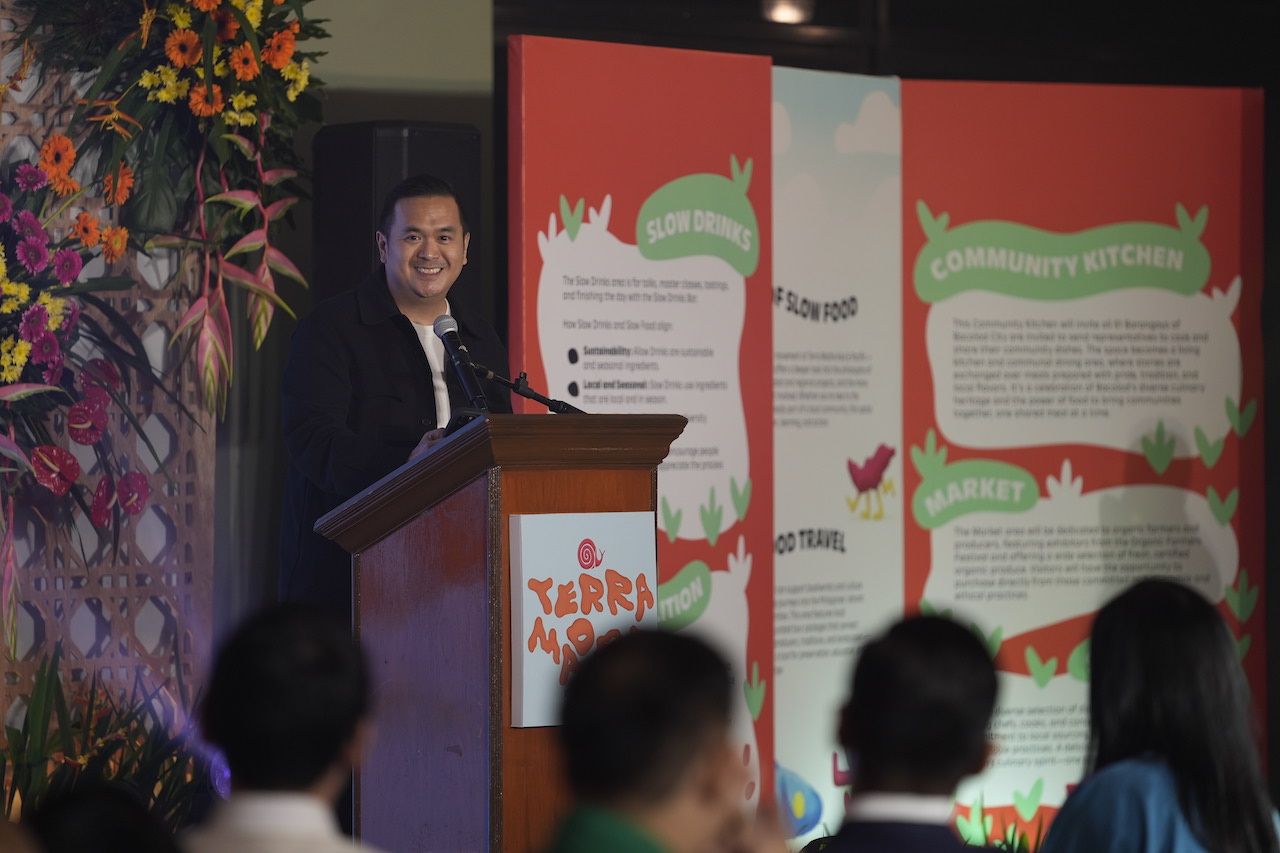
“This is a turning point not just for Slow Food in the Philippines, but for the entire region,” says Ramon “Chin Chin” Uy, Jr., Slow Food Councillor for Southeast Asia and one of the event’s key organisers. “TMAP is a space where grassroots wisdom can shape policy, where tradition can spark innovation. Asia and the Pacific deserve to be at the centre of the global sustainable food conversation.”
A Journey “From Soil to Sea”
The theme of the event, “From Soil to Sea: A Slow Food Journey Through Tastes and Traditions”, takes visitors on an exploration of the region’s ecosystems, communities, and food lifeways.
There are more than 100 activities lined up across six thematic areas, each designed to immerse visitors in the breadth of not just the Philippines’ but also Asia-Pacific’s food cultures.
The festival’s central pavilion at the heart of the Lagoon spotlights four staples that shape the region’s gastronomic identity: namely rice, soy, spices, and taro. These are not static displays, as visitors can meet producers and farmers, understand agricultural histories, and how these humble ingredients map trade routes, migrations, and local culture.
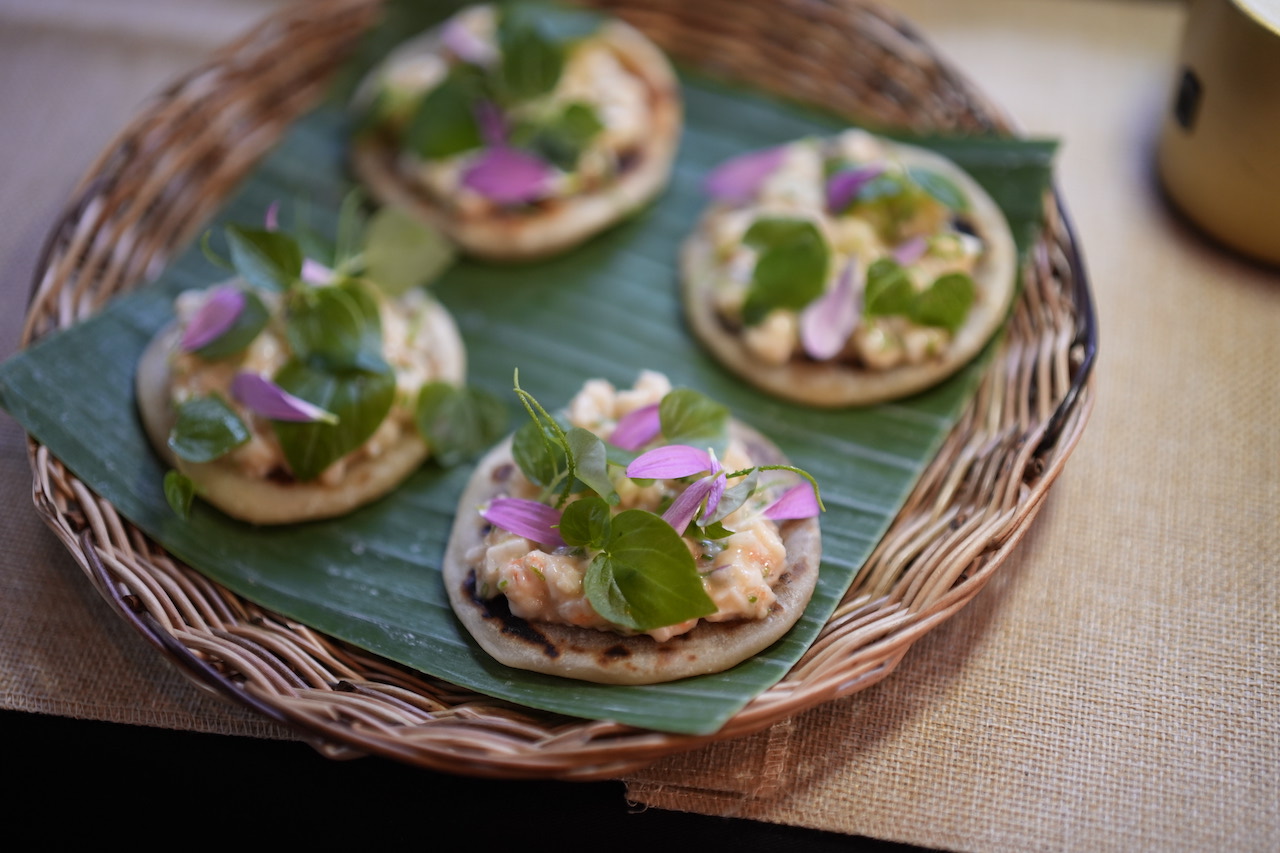
Not to be missed are the taste workshops and chef collaborations, with activations not only at the event but throughout the city. Leading deep sensory workshops is a star-studded roster of over 80 local and international chefs and mixologists. They include renowned names like Johanne Siy (Asia’s Best Female Chef 2023—Singapore/Philippines), Wes Kuo (Embers, Taipei), Lordfer Lalicon (Kaya, USA), William Wongso (Indonesia’s Culinary Ambassador), Jordy Navarra (Toyo, Philippines) and Miko Calo (Taqueria Franco, Philippines) to name a few.
Sessions include “From Palapa to Sambal” exploring spice cultures, “The New Filipino Table” with Chef Patrick Go, “Filipino Cheesecake Reimagined” by Chef David Amoros, and “Savouring Coastal Traditions” with Chef Johanne Siy. Evenings see restaurant takeovers, pairing international and Filipino chefs in boundary-pushing, sustainability-driven dinners.

One of the most anticipated spaces, the Community Kitchen, features cooks from all 61 barangays of Bacolod preparing dishes rooted in personal memory and local heritage. There are no celebrity chefs here, just real home cooks sharing traditions that have been passed down through the generations.
The Market and Street Food area highlight both everyday staples and endangered ingredients from the Ark of Taste, Slow Food’s international list of endangered, sustainably produced heritage food and ingredients. These include ingredients such as batuan (a local fruit popularly used as a souring agent), kadyos (pigeon peas), heirloom criollo cacao, artisanal muscovado, and Visayan heritage salts like tultul and budbud.
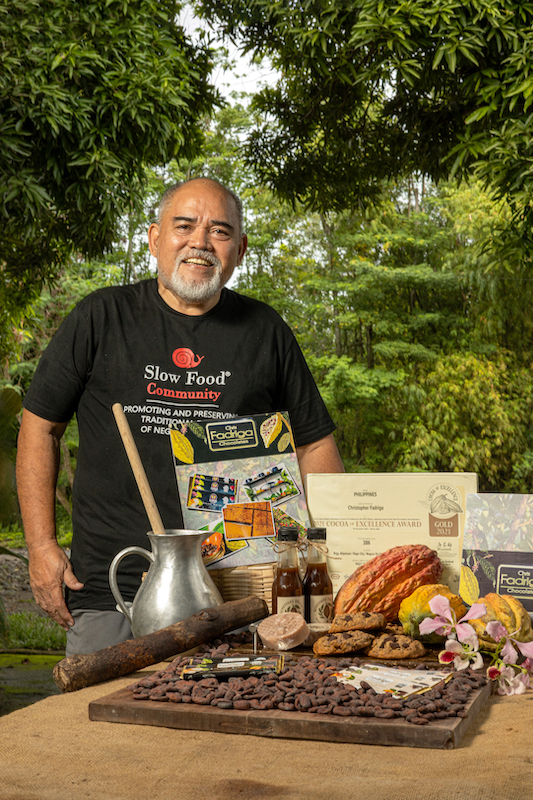

For visitors who wish to delve into deeper topics, TMAP has a series of grounded, intimate talks lined up. Discussions revolve around issues such as climate resilience, indigenous food sovereignty, farmer-chef partnerships, and the future of youth-led agri-entrepreneurship, among others.
Food and drink go hand in hand, and Terra Madre has plenty of programmes in store. Cocktail lovers can follow the Slow Drinks trail curated by world-renowned names like Danny Childs (Slow Drinks, USA), Danny Park (Zest, South Korea), Agung Prabowo (The Old Man & PENICILLIN, Hong Kong / Indonesia), Daniel Nguyen (Sông Cái Distillery, Vietnam), and more.
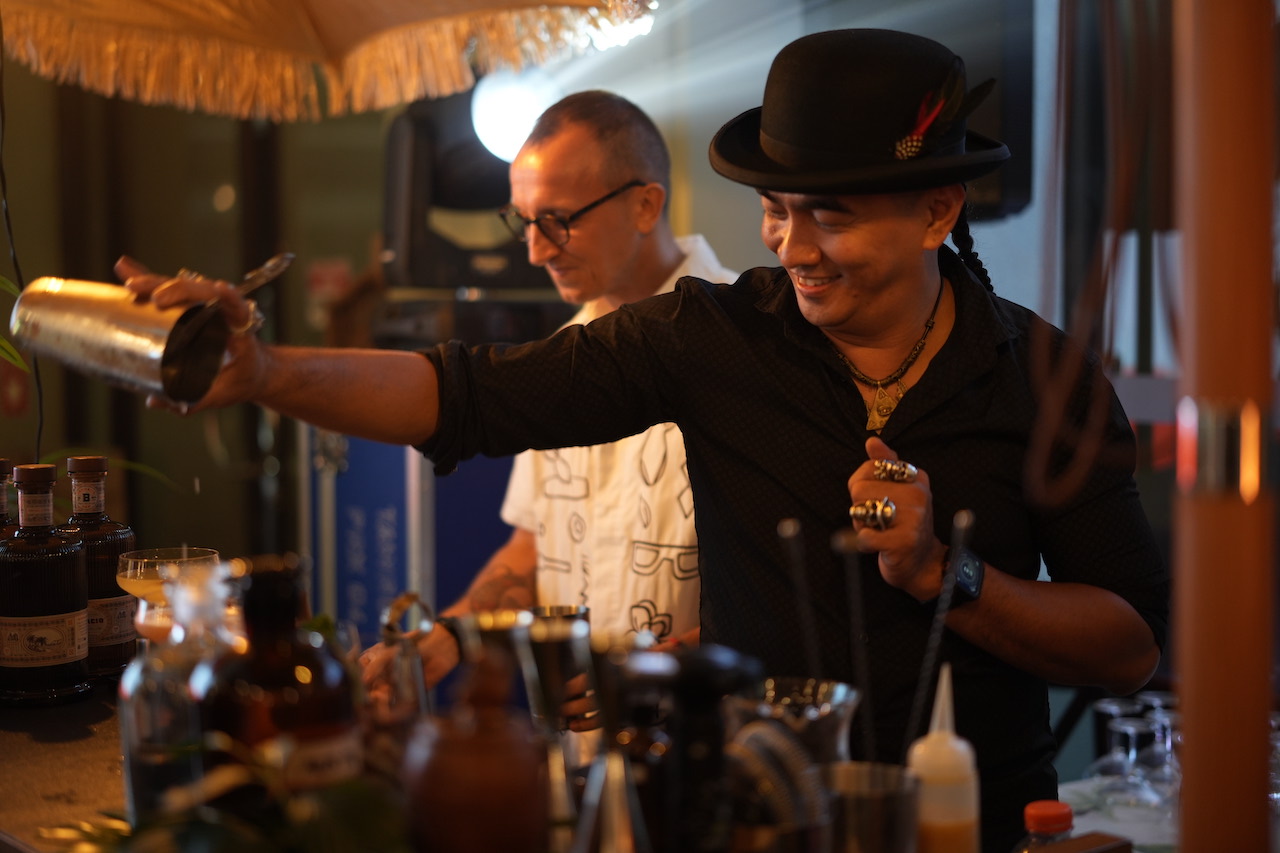
The beverages spotlight foraged infusions, local botanicals, heirloom fruits, as well as creative, non-alcoholic inventions. Nearby, the Slow Food Coffee Coalition Pavilion take visitors from farm to cup with tastings and deep dives into the region’s coffee landscapes.
TMAP 2025 marks a natural progression from the Terra Madre Visayas events hosted in 2023 and 2024. With Negros’ rich agricultural biodiversity, long history of farming traditions, and an active network of Slow Food communities — which has steadily grown since the movement was first introduced to the region close to two decades ago — the region is all set to become the next hub for the slow food movement in Asia and the Pacific.
https://terramadreasiapacific.com/
